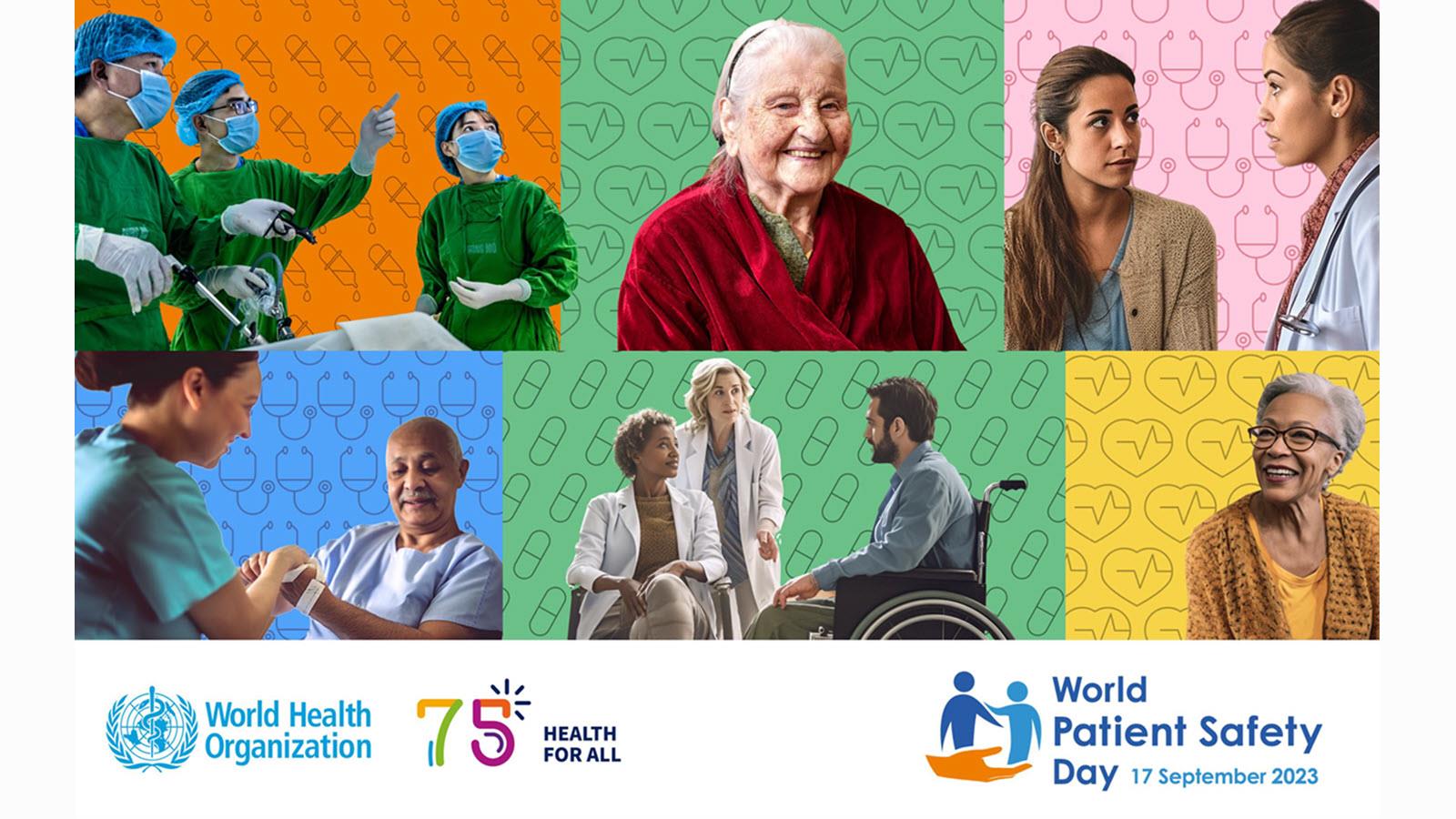This year’s World Patient Safety Day theme reflects a larger trend of not just involving patients but recognizing their essential role in all matters affecting health and health care. What can patients do to promote safety in the health care system?
- Stay up to date on your family member’s medical records, condition, treatment and general well-being.
- Be vigilant and act as an extra set of eyes and ears to identify safety concerns and escalate your concerns if needed.
- Participate in informed consent and make sure you understand the risks and benefits of any treatment or procedure.
- Use all channels of communication with health and care workers to report your concerns and clarify any confusion.
- Share your experiences, concerns and any suggestions to improve safety in the health care environment.
World Patient Safety Day focuses attention on the multifaceted discipline of patient safety, which includes all the actions, processes, procedures and behaviors that help reduce risks that cause avoidable harm to patients, according to the World Health Organizations’ Global Patient Safety Plan.
The plan “strives to eliminate avoidable harm in health care with the vision of ‘a world in which no one is harmed in health care, and every patient receives safe and respectful care, every time, everywhere’. Patients and their advocates should engage policymakers, health care leaders, patient advocacy organizations and others to push for policies and practices that are aligned with the WHO’s Global Patient Safety Plan, the WHO suggests.
Three tools for achieving higher safety standards are informed consent, which is the process of learning about a clinical research trial before participating; shared decision making, which integrates the doctor’s knowledge with a full understanding of what matters most to the patient; and pharmacovigilance, described by the WHO as the “science and activities relating to the detection, assessment, understanding and prevention of adverse effects or any other medicine/vaccine related problem.”
CSL, which makes medicines and vaccines, is driven by its promise to patients and patient safety is a critical element of that, said Eric Teo, Senior Vice President, Global Head of Patient Safety & Pharmacovigilance. During CSL’s Safety Week, employees will hear directly from patients to better understand the challenges they face. CSL’s products, available in more than 100 countries, include medicines for hemophilia and primary immune deficiency, as well as vaccines that protect public health.
“CSL was created with the intention of serving people, enabling them to live full lives and with a commitment to protect their health by providing safe and effective products,” Teo said. “I am privileged and humbled to work for CSL, where patient safety is the highest priority.”



